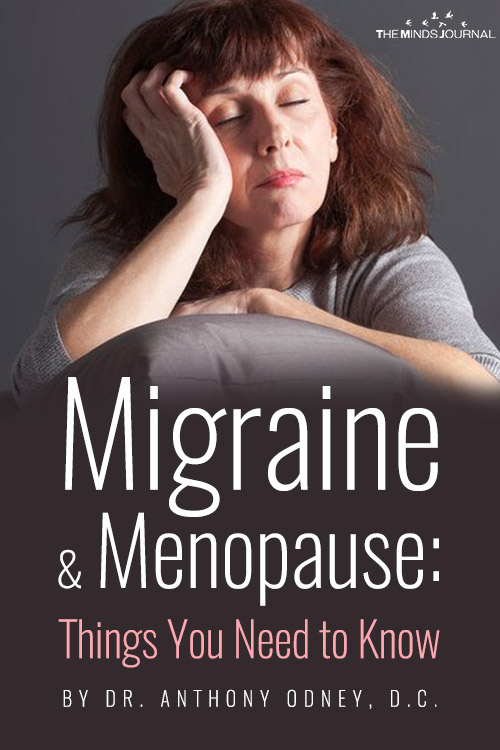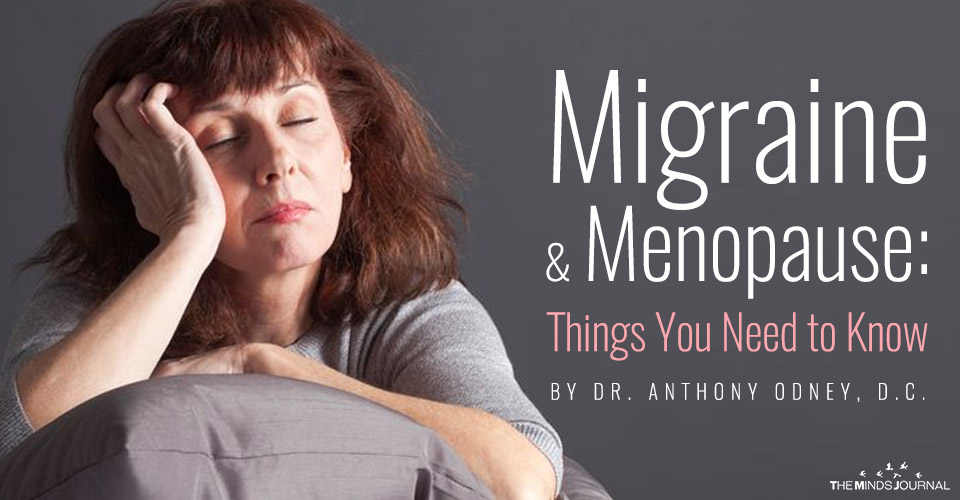Women at all stages of life are affected by migraines, especially those experiencing menopause. In fact, women are three times more likely to suffer from migraines than men.
Today we’ll look at why migraines accompany menopause and what you can do to prevent migraines before they begin.
How does menopause trigger migraines?
Hormonal imbalances are a big deal when it comes to migraines. Specifically, levels of estrogen and progesterone play a leading role in how migraines develop. Even slight fluctuations in estrogen levels can cause headaches.
Because hormone levels change during menopause, migraines often become more frequent and severe. In particular, when estrogen level suddenly drop. While menopause is a natural phenomenon, it can cause lots of unpleasant symptoms such as mood swings, hot flashes, low energy, insomnia, anxiety and of course migraines.
In addition, it’s important to note that migraines also affect women who are perimenopausal, for similar reasons. Specialists believe that this “menopausal transition” can cause migraines, due to strong fluctuations. You should remain aware of the potential for migraine as you enter perimenopause.
What else triggers migraines?
In addition to hormonal triggers, women are more likely to suffer from other kinds of triggers. These may exacerbate menopausal and perimenopausal migraines, making them worse than normal:
- Emotional triggers: Women are twice as likely to suffer from anxiety disorders compared to men, including stress, anxiety and depression. In particular, menopausal women have cited anxiety as a factor for their migraines.
- Physical triggers: 15.3% of women report being exhausted compared to 10.1% of men. Tiredness, fatigue, poor posture, tension, and low blood sugar may also affect women more significantly than men. These physical triggers, especially the role of tiredness and fatigue, are well-documented.
- Dietary triggers: Migraines may also be triggered by missed or irregular meals, dehydration, alcohol, and caffeine. This can affect women, as they’re more likely than men to skip lunch and dinner, as well as more likely to face dehydration.
- Environmental triggers: Women are also affected by environmental triggers that may cause migraines. These include bright lights or loud noises, including computer screens, weather fluctuations and strong smells. Environmental factors may be adding more stress migraines too.
Read Types of Headaches: Which One Do You Have?
What are some home remedies for migraines?
Some women may opt for hormonal treatments during menopause to reduce symptoms and migraines. However, if you’re looking for all-natural solutions, there are also holistic treatments available to help you relieve migraines.
1. Drink more water
Make sure you’re getting enough water during the day. You should be getting at least 8 glasses of 8 ounces each. Dehydration can make your migraines worse, and also cause your body to feel fatigued or weak. Drink up!
2. Get plenty of sleep
Feeling tired or fatigued can also make your migraines more frequent. Try to create a sleep-friendly routine so that you get to bed at the same time every night, listen to relaxing music and avoid screen time to fall asleep more quickly.
3. Avoid skipping meals
Be sure to eat regular, healthy meals. You should never skip meals and should follow an anti-inflammatory diet, which includes fresh fruit, vegetables, whole grains, and olive oil. Cut out processed foods, which include preservatives like MSG and nitrites, and can trigger headaches.
4. Stay stress-free
Beat your anxiety and stress by creating a mentally healthy lifestyle. Find moments of rest and relaxation during the day. Try meditation techniques or download an app for reminders on taking breaks. Regularly treat yourself to a massage or another stress-reduction activity that you enjoy.
5. Take magnesium and riboflavin supplements
It’s essential that you eat more leafy greens, such as kale and spinach, which are rich in magnesium. You should also try to incorporate riboflavin-rich foods like salmon, mushroom, spinach, and almonds. Both of these compounds, magnesium and riboflavin, are known to help reduce migraines and are available in supplement form.
Read Magnesium – A Miracle Cure For Anxiety
6. Sign up for yoga classes
Yoga, it’s great for low-impact aerobic exercise that also uses a mind-body approach. It’s known to help you stay relaxed, while stretching and strengthening key muscle groups. Sign up for a yoga or Tai Chi class to get your body moving in a healthy way.
7. Contact a chiropractic clinic
Chiropractic care may also be a good idea. A chiropractor can help analyze your triggers and look for physical adjustments to reduce symptoms. In addition, a chiropractor can put together a customized plan specific to your situation to help you fight your menopause migraines from all angles.








